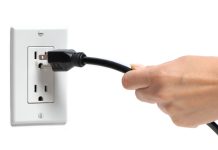While the US sports betting sector welcomed last week’s news regarding California and the latest steps taken towards achieving legal sports wagering in the state, one thing it did highlight was how deep a rift exists between tribal interests and the state’s cardrooms.
Amendments to proposals, originally introduced in June 2019 by Senator Bill Dodd and Assemblyman Adam Gray, would enable the state constitution to authorize retail and online sports betting at the state’s tribal casinos and racetracks if approved by voters, but not at the state’s cardrooms.
The trade-off for the cardrooms would be immunity from any further legal action arising from offering house-banked games, something that has fueled tribal ire for some considerable time.
The cardroom operators, who have argued intensely for inclusion in any new sports betting legislation, seem satisfied/delighted with Dodd’s compromise. The tribes remain resolute, however, that their version of legislation is the only one that counts and would rather chase the cardrooms to the ends of the earth to prevent them from offering such games.
But in a tit-for-tat war of attrition that shows no signs of ending, the cardrooms cry hypocrisy at the tribes who, they say, have their own way of circumnavigating the rules to offer a form of roulette and craps in their casinos. Stones thrown – glass houses?
Either way, it’s a rather unsavory and prolonged squabble that does neither side any favors and ultimately rankles policy makers who hate bickering almost as much as they despise illegal gambling.
The California Nations Indian Gaming Association (CNIGA) did at least try to rationalize its opposition to Senator Dodd’s amendment of the state constitution to allow sports wagering.
Chairman James Siva wrote: “First, while on its face this language seeks to amend the constitution to legalize and regulate sports wagering in California, this language also provides California’s commercial card room industry with a massive expansion of games, by legalizing the use of proposition players to serve as the bank, a notion that has been rejected by California’s voters and fundamentally changes the legal structure of California’s peer-to-peer gaming industry.”
He added: “While we appreciate Senator Dodd’s attempt to address sports wagering, we are vehemently opposed to including an expansion of gaming to a segment of the gaming industry that has proved, for decades, to be unwilling to follow the rules and regulations that guarantee a fair and safe gambling environment, and that comply with federal laws designed to stop money laundering.”
The association basically wants Dodd to remove the provisions relating to California card rooms until they exhibit consistent behavior that proves that they are both willing and able to operate within the confines of the laws and regulations that currently exist. In other words, make them stick to offering poker and let them wither on the vine.
Siva finished by saying: “As valued partners with the state of California, our tribal governments would welcome the opportunity to provide input on a significant proposed change in the gambling policy of California, and look forward to more open and meaningful discussions.”
As meaningful as those discussions might transpire to be, it’s clear that the cardrooms can expect no quarter given by the tribes. Neither will the Indian nations want to see any leaching of their exclusivity on sports betting via the introduction of mobile wagering.
These are big demands, as might be expected from the tribes who collectively generate circa $20bn in economic output annually. Their exclusivity, they contest, has been hard fought and will not be subject to any form of compromise.
Are they asking too much? Well we’re just playing devil’s advocate in a debate where some will argue that California’s vast potential for sports wagering might never be fulfilled if all but tribal casinos and a handful of racetracks are denied market access.
Put another way, if you were a bean counter looking to help fill California’s $54bn budget black hole you might want to maximize that potential rather than tighten the tourniquet. But that would mean compromise and there doesn’t seem to be much of that lying around these days, unless of course you’re a cardroom operator after a quiet life away from the courts.













